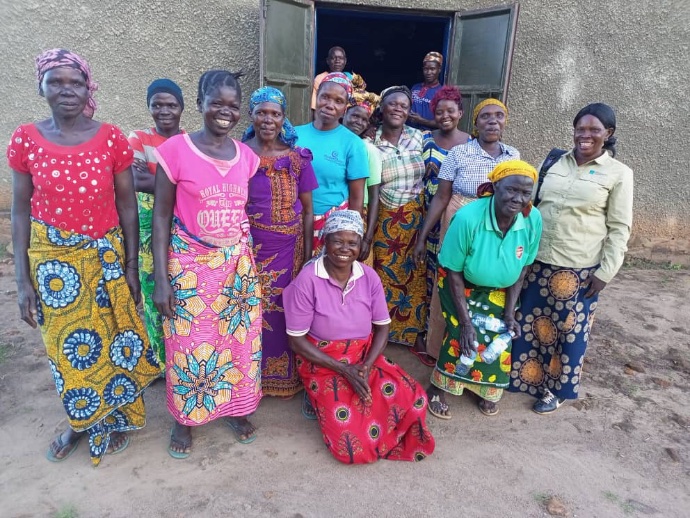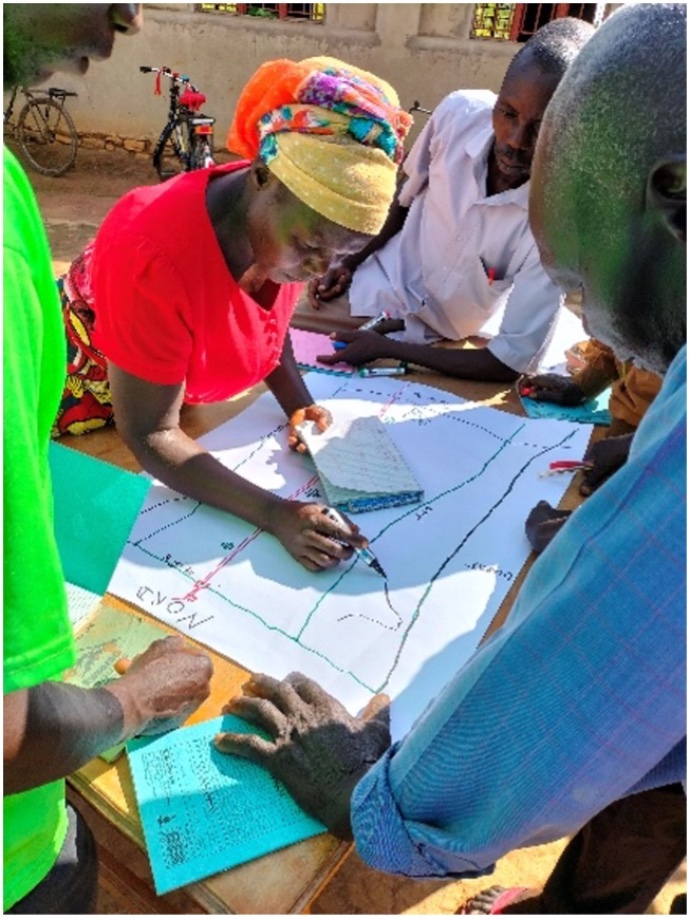By Irene Nyambura and Julia Boharski, World Concern

Women leaders in OVT Azanga, DRC. Photo: World Concern
In the Democratic Republic of Congo (DRC), gender inequality is deeply rooted in cultural norms and further exacerbated by over thirty years of conflict. DRC ranks 140th out of 146 countries on the Global Gender Gap Index 2024, which assesses economic participation, educational attainment, health and survival, and political empowerment.[1] Recent research shows that over 50% of women are survivors of domestic violence, nearly 40% marry before the age of 18, and only 7% of women occupy high level positions in the national government and parliament in DRC.[2] To reduce the outcomes of gender disparity, World Concern, in partnership with local communities and the Diocese of Aru, is implementing holistic programming that addresses the root causes of gender inequality. Through these initiatives, World Concern is witnessing transformative change in the lives of women, their families, and their communities.
From Subsistence Farming to Economic Independence
World Concern’s signature program, One Village Transformed (OVT), is a multi-year, multi-sector, community-driven development project. In DRC, the OVT project’s sectoral focus is on economic empowerment, agriculture, clean water, and education. A prominent aspect of the project is ensuring that marginalized groups, particularly women, are represented and included in designing and implementing development initiatives to strengthen the community as a whole. Atibaru, a woman from Azanga, recalls her experience participating in the OVT project thus far.

A woman participating in a community mapping exercise. Photo: World Concern
She remarks, “I feel optimistic about the changes that have occurred in our village since the introduction of the project. Prior to its arrival, life was challenging for us. However, with the project’s commencement, we embarked on a journey of learning, focusing on leadership and various training programs. This initiative has positively transformed our community, particularly the mindset of individuals who were previously skeptical.”
Before the onset of the project, women primarily engaged in subsistence farming, which was barely sufficient for their families. Now, after receiving training that emphasizes developing agricultural skills, they are able to cultivate surplus crops, such as millet, beans and vegetables, which they can use to feed their families and sell in the local market.
Atibaru engages in economic development activities as part of the OVT project. Alongside women in her community, she is part of a Savings and Loans for Transformation (SALT) group. Atibaru notes, “This newfound knowledge allows us to save money, enhancing our financial independence. It is essential to note that women tend to be more reserved than men, but through training, they are actively participating in household decisions and contributing financially. OVT has allowed for collaboration, encouraging us to work together to save money.” Atibaru’s newfound economic independence has not only improved her family’s living conditions but also challenged traditional gender roles in her community.

A new school funded by World Concern and the Azanga community. Photo: World Concern
In the OVT project, parents and community members come together to address the inhibiting factors that prevent girls from being enrolled in school. Since the project’s inception, Atibaru reflects, “Women are increasingly valued and respected. In our community, girls now comprise about 40% of school enrollment, a remarkable change from the past when education was predominantly reserved for boys. Reflecting on my own experience, I did not have the opportunity to attend school because my father prioritized marriage over education for me. Many of my friends faced similar fates. However, the current generation of girls is seizing opportunities that were once denied to us. I am deeply grateful for the support of the project, as it has empowered women and transformed our community. I thank you for believing in us and contributing to this positive change.”
Atibaru’s experience captures the transformative journey of women who, previously marginalized and undervalued, are now emerging as leaders and decision-makers in their households and communities. The project’s focus on leadership training and resource management has equipped women with essential skills, empowering them to contribute economically and socially. The changes in family dynamics, particularly regarding financial management and education, emphasize the critical role of women’s contributions to household welfare. The increased enrollment of girls in schools reflects a growing understanding of the value of education for all children, regardless of gender. The progress made by the community in these areas is essential to break the cycle of poverty, enabling future generations to thrive. By recognizing and addressing the barriers that inhibit inclusion and equity, both men and women have gained a new confidence in contributing to decision-making processes and development initiatives.
You can learn more about World Concern’s community partnerships for transformational development in DRC and around the world at https://worldconcern.org/
[1] World Economic Forum, https://www.weforum.org/publications/global-gender-gap-report-2024/in-full/benchmarking-gender-gaps-2024-2e5f5cd886/#global-results
[2] UN Women, https://africa.unwomen.org/en/where-we-are/west-and-central-africa/democratic-republic-of-congo